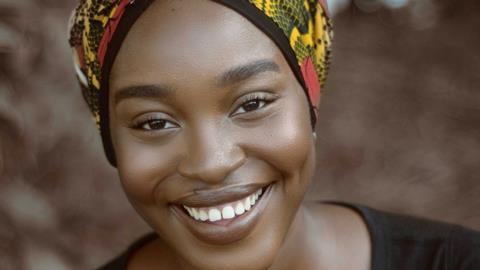Kate Orson unpacks the cultural narratives around trans ideology and asserts that knowing our identity in Christ helps us to truly be ourselves
On the 9 April, the UK the supreme court ruled that when the Equality Act 2010 referred to women, it referred only to biological sex and did not include transgender women who hold a gender recognition certificate (GRC). Thousands of trans activists took to the street to protest the ruling, seeing it as a step backwards in their human rights.
Sex and gender
To trans activists there is a difference between the biological sex we are born with and gender identity. This concept was first coined by sexologist John Money in 1955 to refer to gender roles and the way we stereotype certain behaviours into male and female.
But what does the Bible say? In Genesis 1:27 it says that “male and female he created them”. There’s no mention of any distinction between sex and gender. Though Deuteronomy 22:5 does say that: “A woman must not wear men’s clothing, nor a man wear women’s clothing, for the Lord your God detests anyone who does this”, this verse seems to suggest that we aren’t meant to take on a ‘gender identity’ of the other biological sex.
When I explore the cultural narratives around trans ideology, there is so much complexity and confusion. There are beliefs that logically cannot coexist. For example, if biological sex and gender are deemed as different things, then why do many trans people wish to transition to have a biological sex that matches their gender? If there are such concepts as being ‘gender-fluid’ or ‘non-binary’ then what’s to say a gender identity wouldn’t change after taking irreversible decisions, such as mastectomy? And, isn’t it a step backwards for feminism to think of ‘men’ and ‘women’ as cultural gender constructs based on stereotypes such as ‘women like cooking’ and ‘men enjoy football’?
A friend of a friend had a teenager struggling with gender identity. She then went to university to study science and was suddenly surrounded by lots of young women like her who loved a subject that is often associated with the male gender. She suddenly realised that trans ideology had given her the false messaging that if she liked certain activities deemed male by social stereotypes, then she must be male.
This ideology is dangerous because it causes irreversible damage. That latter phrase is the name of a book by former Wall Street Journal columnist Abigail Shrier (Irreversible Damage: The transgender craze seducing our daughters). Shrier reports on how being trans was relatively rare in former times, but now more and more girls are identifying as trans. Shrier blames powerful social media influencers for the distorted thinking among teens who never previously showed signs of gender dysphoria.
God and identity struggles
I recently waded into a trans debate with some Facebook friends, and then I quickly exited again, when something occurred to me: we can’t fully solve this problem without God.
Hearing testimonies of those who detransition after finding God, such as Laura Perry Smalts and Daisy Strongin, suggests to me one thing: that our identity in Christ helps to bring us back to ourselves, to who we were created to be. Men are created to be men, and women are created to be women. Unlike trans ideology, “God is not the author of confusion” (1 Corinthians 14:33).
What fascinates me about the stories I’ve come across of ‘detransitioners’ finding God is these people aren’t influenced by the ‘Church’ or the doctrinal beliefs of people around them. It’s simply the Holy Spirit showing them who they are.
Will a believer always find peace in their God-given biological sex? In a fallen world, there will be identity struggles. However the fact that God can heal our struggles suggests strongly to me that we are not meant to ‘pick’ our gender, but instead seek our peace in Christ, and who he created us to be.
At peace with the differences
After absorbing years of feminism and worldly ideas about gender, and then becoming a Christian, I found myself deconstructing a lot of what I’d previously learned about what it means to be a woman. While I don’t want to absorb the more legalistic ideas of complementarian churches, I notice the ways the Holy Spirit teaches me that men and women are fundamentally different, and that those differences stem from biology.
A 2017 study from molecular genetics researchers Dr Gershoni and Prof Pietrokovsk (pubmed.ncbi.nlm.nih.gov/28173793/) looked at how active the same genes are in men and women. They found that about one third of these genes (more than 6,500) had very different activities in men and women. Some genes were active in men only or women only. Many genes were far more active in one sex or the other.
There are so many lost, confused and hurting people, who have been deceived by trans ideology to deny their own bodies, and the way God created them to be. I pray that more will discover the ultimate peace of Christ.


































1 Reader's comment